The content of the article
Many dog owners are faced with such a problem that the animal is banging its teeth. This phenomenon raises many questions, because almost no one knows the reasons for this behavior. It is worth noting that the reasons that a pet is banging its teeth can be both the safest, for example, if the animal experiences chills, and can be quite serious when a pathological process begins to develop in the dog's body. That is why you should pay attention to this feature, and take the animal to the veterinarian so that he can diagnose the disease in time if there is one.
Teeth chattering as a male’s reaction to a female
Dogs sometimes show strong clacking or clicking of their teeth when they are in a state of intense excitement. This happens, of course, in the presence of a bitch. To understand that the reason is really in the excitement, you need to evaluate the presence of other signs:
- The jaw of the animal begins to intensively move up and down.
- Excitement has not yet come fully, the penis of the pet is half visible.
- The male begins to make attempts to jump on the female, having failed to control herself.
A similar condition in dogs can occur no earlier than when they reach the age of six to eight months. As a rule, it is at this time that males begin to clap their teeth due to excessive excitement. The complete balance of the hormonal background in the animal converges by about three years, in some even a year later. Up to this age, clicking of teeth can often be observed in males.
In some cases, if the dog does not get satisfaction with the female, he starts to jump on people and even household items. At such an age and a state, clattering of teeth is absolutely normal, since in this way the animal shows its maturity and willingness to enter into intercourse with the female.
Clicking teeth with parasites in the intestines
An animal can clap its teeth due to the fact that worms live in its intestines. In this case, the click is due to pain in the abdomen. To understand that the pet really got parasites that cause him discomfort, you can by the following symptoms:
- Sleep disturbance in an animal.
- Digestive system disorder, stool disorders, bloating in the intestines.
- The animal may freeze.
- In the stool of a dog, inclusions from blood, cereal or mucus can be observed.
- A puppy may develop dehydration.
- A sharp decrease in immunity occurs.
- The animal becomes very weak and inactive, the pet is becoming increasingly difficult to move every day.
- In the anus, the animal feels a constant itch. You can observe how parts or entire worms come out.
It should be understood that worms cannot be detected and cured quickly. Therefore, do not hesitate. If your pet bites its teeth, you need to check its feces for the presence of worm eggs. An early call to the veterinarian will determine the presence of parasites and begin treatment of the animal as soon as possible.
Disorders of the nervous system - the cause of teeth clattering
If the animal clicks its teeth, the cause may be hidden in a variety of pathologies of the nervous system. For example, abnormalities may occur due to the development of viral diseases such as rabies and canine distemper. These ailments are very dangerous, so a timely visit to a specialist will make it possible to save a pet.
Note:
- Symptoms manifest rather late, in the early stages of the development of the disease, it is almost never possible to understand its presence. As a rule, the first signs appear when the virus has already progressed in the body.
- In more advanced cases, the animal begins to tremble almost constantly, it drools quite actively.
- It is important to start treatment as soon as the first symptoms of the disease appear, since the death of the animal can occur within three weeks after the first signs appear.
- If your pet has bitten you, then in the area of the wound that appears, severe itching will be observed.
- The animal becomes noticeably more aggressive, as well as quickly excitable.
- The jaw of the dog gradually droops, as a result of which one can observe a banging with teeth.
- The pupils of the animal expand significantly.
- With rabies, a pet may experience a fear of light, as well as difficulty swallowing food. As a rule, the animal becomes cold. The owner should take appropriate measures, providing the pet a dry and warm room.
As the pathology develops, the animal is affected by the nervous system, as well as muscle tissue. As a result, the death of the animal gradually occurs.
Before determining the disease in a pet, a doctor will need to conduct a series of clinical studies. Until all results are obtained, the animal will be placed in a hospital under quarantine.
Any dog breeder can prevent the occurrence of diseases. For example, vaccination is the most common way to protect your pet from rabies. If the infection of the animal did occur, then the only sure way would be to euthanize the dog, since there is no special drug for the treatment of rabies today.
Pathologies that can provoke a snap of teeth are quite a large number, and therefore, if such a sign is detected, you should immediately contact a specialist. Timely treatment allows you to save the pet and greatly alleviate its condition.
Severe pain as a cause of toothache
Sometimes an animal begins to grind its teeth when it experiences severe pain. The cause of the manifestation of painful sensations can be a variety of ailments and pathologies. To correctly understand why the animal clicks its teeth, what exactly it hurts, and what is the root cause of the appearance of pain, you should pay attention to other signs:
- Detection of the release of blood, pus, or other fluids from the genitals in females.
- Marked bloating in the pet
- The increase in body temperature of the animal.
- Pain in the head and ears.
The presence of these signs indicates the presence of pathology in the body of the animal. However, it is unlikely that any of the breeders will succeed in determining on their own what the cause of pain and toothache is. Moreover, the reasons can be both absolutely safe and normal for certain breeds and species of animals, as well as threatening their life or health. The only right decision if you find a knock on your pet’s teeth and other symptoms is to go to the veterinarian.
Only a specialist is able, on the basis of the examination and necessary studies, to establish the true cause of the pet's malaise. After consultation with a doctor, treatment of the animal should begin. Alternative methods can also be used, but only after the approval of a specialist.

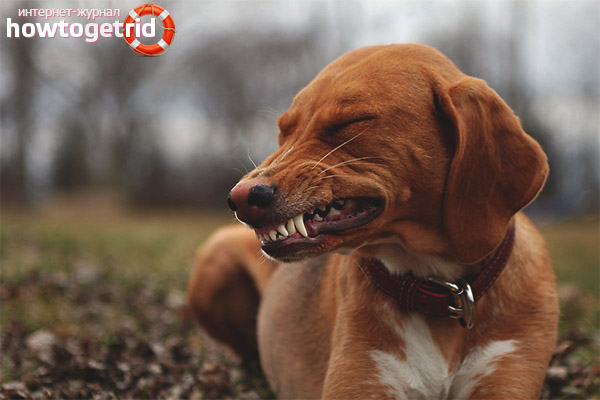
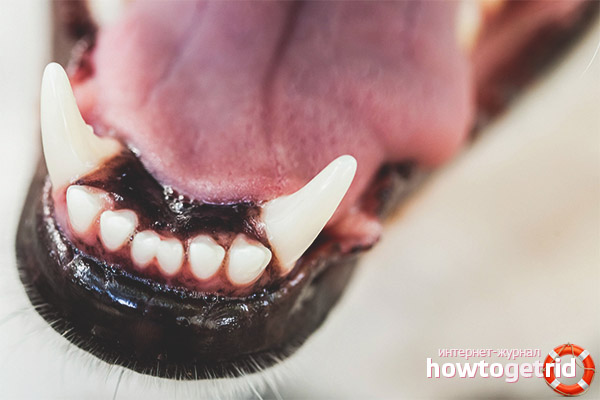

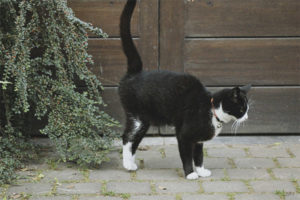
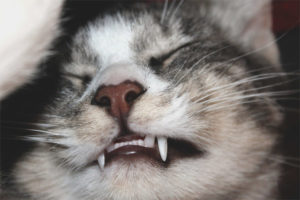


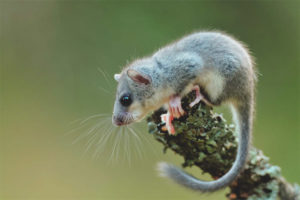

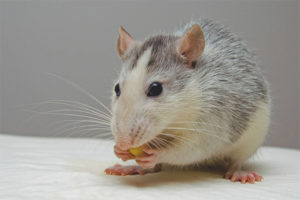
Submit